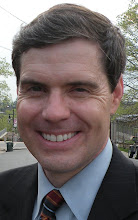Sunday, July 4, 2010
Tuesday, June 8, 2010
Bill Halter choice of Democratic voters in Northwest Arkansas
Thursday, June 3, 2010
Thursday, May 27, 2010
Tuesday, May 18, 2010
Halter fans plentiful in downtown Fayetteville on night before senatorial primary election
Saturday, April 24, 2010
Boozeman, Lincoln and Pryor all promised in 2009 to cooperate to get federal money appropriated to buy sale-barn property; instead, their failure to act has resulted in wet-prairie land north and west of the National Cemetery being dredged and filled for burial sites
Fayetteville National Cemetery photo set. Scroll to bottom of set for more of today's photos This didn't have to happen. Could it be related to the fact that none of the three is a U.S. military veteran? Or did they have more important people's votes in mind? The percentage of veterans who vote is pretty high. The right to vote has always been a reason for many to agree to fight to protect our Democratic form of government.  Please click on image to ENLARGE view of land dredging at Fayetteville National Cemetery on April 23, 2010.
Please click on image to ENLARGE view of land dredging at Fayetteville National Cemetery on April 23, 2010.
 Please click on image to ENLARGE view of land dredging at Fayetteville National Cemetery on April 23, 2010.
Please click on image to ENLARGE view of land dredging at Fayetteville National Cemetery on April 23, 2010.
Friday, April 16, 2010
Earth Day Festival began Friday night with Caring for Creation at Mount Sequoyah; Earth Day at World Peace Wetland Prairie from 1 to 5 p.m. Sunday, April 18, 2010, offers eduction and fun for all ages
Please click on image to ENLARGE for closer view of sample photos from WPWP.
PLEASE double-click the image to ENLARGE view and ENLARGE further with your computer's tools to read small type. For more about World Peace Wetland Prairie please see www.flickr.com/photos/7295307@N02/collections/ www.flickr.com/photos/7295307@N02/collections/
PLEASE double-click the image to ENLARGE view and ENLARGE further with your computer's tools to read small type.
MANY REASONS TO PROTECT LAND SUCH AS WORLD PEACE WETLAND AND PINNACLE PRAIRIE FOREVER:
World Peace Wetland Prairie is the riparian zone of a small stream that historically was fed by seep springs and rainwater from three directions when the first westward immigrants settled Fayetteville, Arkansas. World Peace Wetland Prairie has the deepest layer of dark, rich soil in its subwatershed because leaves and other vegetative matter accumulated as the flowing water slowed and soaked into the absorbent soil and enriched that soil. Pinnacle Foods Inc.'s mounded wet prairie to the west is the main source of clean water flowing to World Peace Wetland Prairie at this time. Before the railroad was built, water flowed off Rochier Hill to the northwest and from the prairie and savannah to the north of WPWP that has been replaced by fill dirt and paving for apartments. Water from the east and north slopes of the high land where Pinnacle Foods Inc. now sits flowed to WPWP along with all the water from the high ground near 15th Street, which moved north to WPWP before flowing east to the Town Branch of the West Fork of the White River. Such remnants of prairie help keep the water where it falls and recharge the groundwater. Like the many similar remnants of such prairie in our diverse geographical area, WPWP and Pinnacle Prairie are the surface manifestation of a significant bedrock fault. Such sunken wetland is a characteristic feature that appears above geological faults worldwide. The Karst map of Washington County Arkansas shows the WPWP watershed in red, meaning that it is a critical groundwater recharge area. Preserving such depressional wetland in our city is the least expensive way to reduce downstream flooding and siltation of our water supply. Hundreds of native plants grow. Many birds and other wildlife prosper on healthy wetland vegetation. And prairie vegetation sequesters carbon dioxide and cleans the ground water.
KEEP the WATER where it FALLS!
Sunday, April 11, 2010
Halter's supporters include many among Senior Democrats in Northwest Arkansas

This copy is for your personal, noncommercial use only. You can order presentation-ready copies for distribution to your colleagues, clients or customers here or use the "Reprints" tool that appears next to any article. Visit www.nytreprints.com for samples and additional information. Order a reprint of this article now.
April 10, 2010
In Arkansas, Avoiding Labels, Even ‘Democrat’
By JEFF ZELENY
SPRINGDALE, Ark. — This season’s darling of the political left, a man who has generated millions of dollars in his quest to stop Senator Blanche Lincoln from serving a third term, took a seat in the Gunsmoke Room at the Western Sizzlin restaurant here and explained his ideology.
The word Democrat came up only a time or two. The word liberal? Never.
“I don’t want the simplistic labels to get in the way of what’s really going on here,” said Lt. Gov. Bill Halter, a Democrat whose primary challenge to Mrs. Lincoln has ignited enthusiasm among activists who want to purge the party of those they see as close to corporate interests and uncommitted to liberal causes. “I’m complicated. I doubt you would like it very much if someone put a one-word adjective to describe you.”
Yet the very definition of the Democratic label is being tested in the Senate race in Arkansas, which has emerged as one of the most divisive primaries among Democrats as the midterm elections get under way.
Mr. Halter’s reluctance to fully embrace the left might ultimately make him a less-perfect standard-bearer than many liberals had hoped. But the campaign for the Senate seat held by Mrs. Lincoln — one that has been in Democratic hands for more than a century — is highlighting the divide between pragmatism, idealism and opportunity, as well as the tension between the continuity represented by incumbents and the change offered by challengers.
For all the talk of an angry conservative electorate this year, those on the left side of the spectrum are plenty angry, too, frustrated that President Obama and the majorities his party enjoys in Congress have not accomplished more to enact a liberal agenda. And the primary in Arkansas, one of the most conservative of Democratic bastions, has become a place for liberals to vent frustrations and invest millions for television ads to unseat an incumbent.
The political environment is rocky for all Democrats, but it is particularly challenging for centrists like Mrs. Lincoln. Her opposition to cap-and-trade climate change legislation, her vote against the final step of the health care bill and her opposition to the Employee Free Choice Act, which makes it easier for unions to organize, have increased her vulnerability — and that is just among Democrats.
She argues that her record fits Arkansas, but eight Republicans have lined up to run for her seat, and some groups are backing Mr. Halter simply because they believe he has a stronger shot in a difficult year.
But for the next five weeks, until the May 18 election, the contest is unfolding with all the trappings of a messy — and expensive — family feud that some Democrats fear could weaken the eventual nominee. Similar confrontations are under way in Pennsylvania, where Senator Arlen Specter is seeking to fend off a primary challenger, and in Colorado, where Senator Michael Bennet is battling anti-Washington sentiment.
“I will — win or lose — be a Democrat,” Mrs. Lincoln said last week after a campaign stop in Fayetteville. “I believe very strongly in the big tent theory of the Democrats — it appreciates and respects diversity. That’s the Democratic Party I was taught to cherish as a child, and I still do.”
Five of the nation’s largest labor unions pledged to spend at least $3 million on her defeat. MoveOn.org, a grass-roots liberal organization, and several left-leaning blogs endorsed Mr. Halter, helping to raise more than $2 million on his behalf in the last month.
Mr. Halter’s challenge is born out of opportunity as much as ideological frustration. His popularity as lieutenant governor grew after he pushed for the first Arkansas lottery, to provide college scholarships. He has never cast a vote in office, which offers him the blessing of running without a voting record.
So how would Mr. Halter have voted on health care? When asked in the interview, he said, “You’re not going to like the length of my answer” and talked for four minutes without a specific answer. Asked again, he said, “Yeah, I would have voted for it.”
But Mr. Halter’s lack of a voting record is just fine with several people interviewed at a luncheon in Northwest Arkansas, where nearly 100 retirees gathered for a salad bar, a hot buffet and a political pitch.
Terry Jones, 62, a retired prosecutor from Fayetteville, put it more bluntly. “We’re going to vote for a Democrat, and that’s not Blanche Lincoln,” he said. “She’s willing to hang with the Democratic folks on little issues, but on the ones that really matter in terms of the Democratic Party, she can’t be counted on.”
The intramural warfare has turned bitter. The two are not close, but Mr. Halter, 49, attended the re-election kickoff for Mrs. Lincoln last year. And Mrs. Lincoln, 49, said she considered Mr. Halter a “good friend” as she testified on his behalf when he was nominated for a job in the Clinton administration.
As she traveled across Arkansas, Mrs. Lincoln walked with no entourage, carrying a foam cup of hot tea (the kind one finds at a gas station, not a coffee house). She lets few opportunities pass to remind voters of her position in the Senate, and she urges people to visit her Web site, which is loaded with a county-by-county map of the projects she has delivered.
“The chairmanship of the Senate Agriculture Committee isn’t just mine, it’s ours,” Mrs. Lincoln told an audience at the Farm Bureau in Fayetteville.
But as she left the meeting, a local reporter pulled her aside to ask about health care votes: She supported the bill during the Senate’s vote on Christmas Eve but opposed a final procedure known as reconciliation. She talked for several minutes as she delivered an answer that did not easily fit into a sound bite.
“You’re talking about reconciliation,” Mrs. Lincoln said. “I did not support that process.” As the reporter pressed her again, she added: “There’s no waffling on the health care bill. I supported it, and I own it.”
Tuesday, April 6, 2010
Subscribe to:
Posts (Atom)














